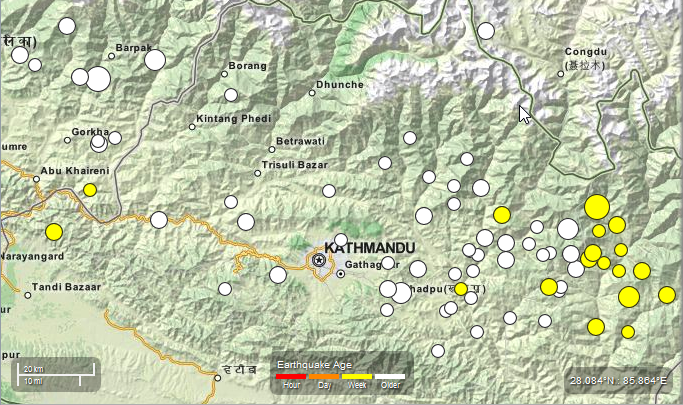The Open Geospatial Consortium (OGC) has announced the Disasters Interoperability Concept Development Study (CDS). The CDS will assess the current state of data and product exchange technologies as used in disaster planning, response, and recovery. The information gained in the CDS will aid in developing a series of future pilots that will in turn advance the state of Spatial Data Infrastructures (SDIs) that support disaster risk reduction across the globe.
The OGC is inviting anyone who provides and/or uses geospatial data or products connected to disasters to participate in a series of workshops this year. You are also invited to respond to the Request For Information (RFI) that will be issued by the OGC in February 2018.
Geospatial information has been proven effective in supporting both the understanding of and response to disasters. The supported activities include identifying at-risk areas by building scientific models and analyzing historical data, to assessing damage and coordinating response teams using near real-time imagery and data in the wake of a crisis, and myriad other applications in-between.
However, the ability to effectively share, use, and re-use geospatial information and applications across and between governments and Non-Government Organizations (NGOs) in support of disaster response and resilience is dependent upon having the required partnerships, policies, standards, architecture, and technologies already in-place when disaster strikes.
The Disasters Interoperability CDS is being organized by the Open Geospatial Consortium (OGC) and sponsored by the Federal Geographic Data Committee (FGDC) and the US Geological Survey (USGS), with the objectives of collating, documenting, and making freely available the knowledge and best practices required for geospatial information sharing in times of crisis.
In order to achieve these objectives, the CDS will bring together diverse stakeholders from the global disasters community to assess the current state of data exchange technologies (e.g. data, tools, APIs).
This OGC Innovation Program initiative will lay the groundwork for multiple OGC Pilot Projects over the next 5 years. These pilots will, in turn, advance the ability of SDIs to support disaster risk reduction.
By combining the information gained in this CDS with future OGC Testbeds (like Testbed 14)and Pilot Projects, the OGC and its members will demonstrate the richness, benefits, and value of using international standards to provide geospatial data in support of disaster planning, response, and recovery.
This study and subsequent initiatives will show how data standards help stakeholders and decision makers gain new and beneficial perspectives into social, economic, and environmental issues related to disasters by providing access to an online network of resources that improve the sharing, use, and integration of information tied to geographic locations across the globe.
For more information on the Disasters Interoperability Concept Development Study, participation in the workshops, or responding to the upcoming Request for Information, please visit www.opengeospatial.org/projects/initiatives/disasterscds or contact Terry Idol tidol@opengeospatial.org.
